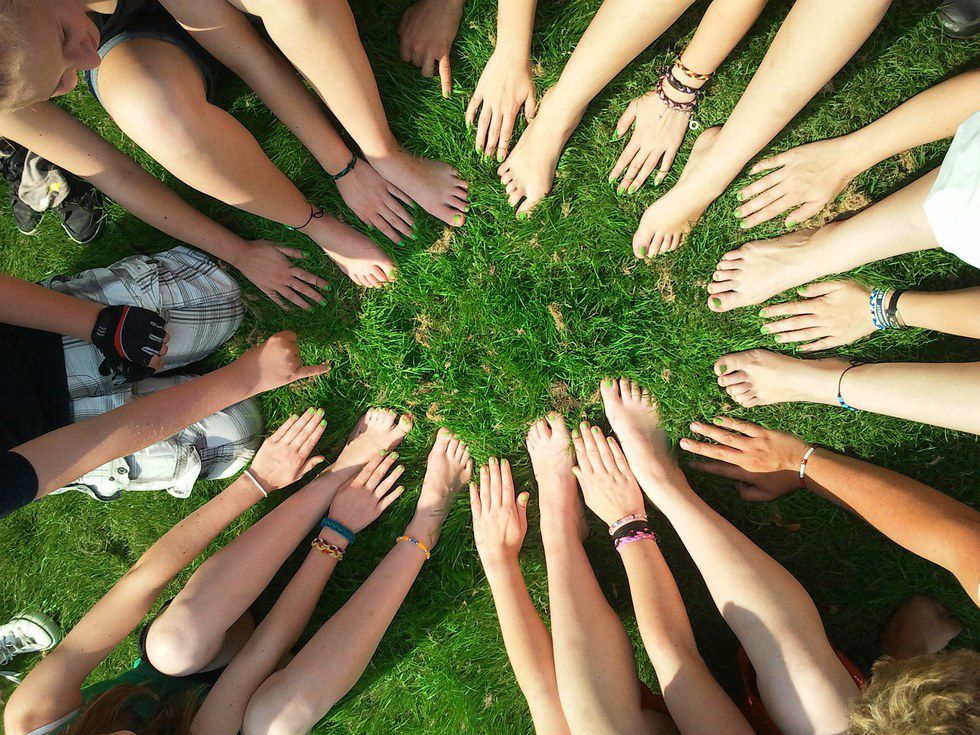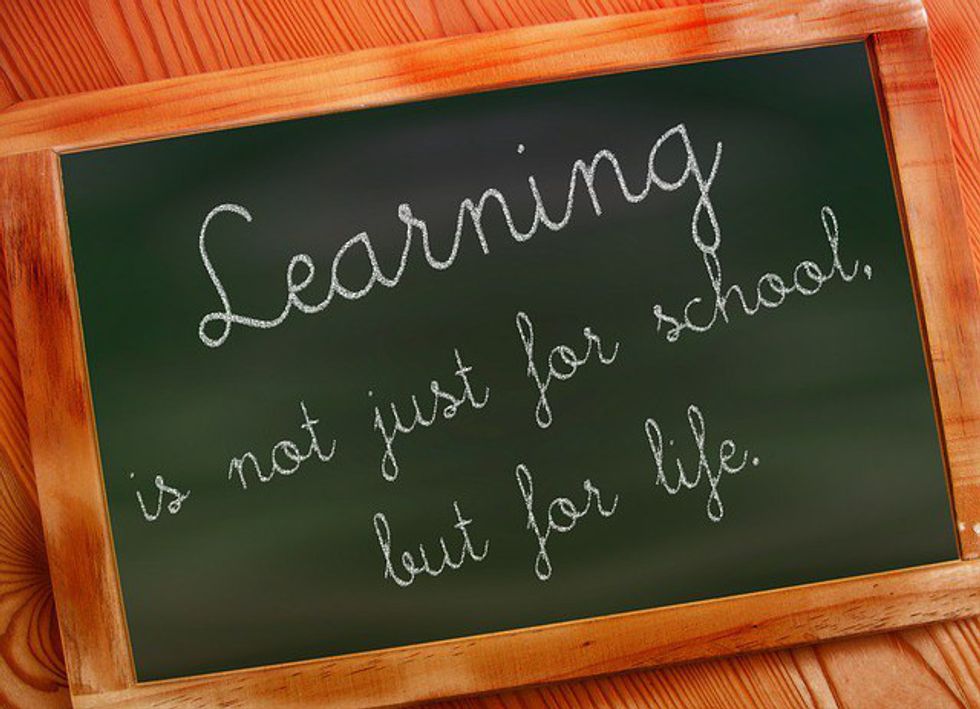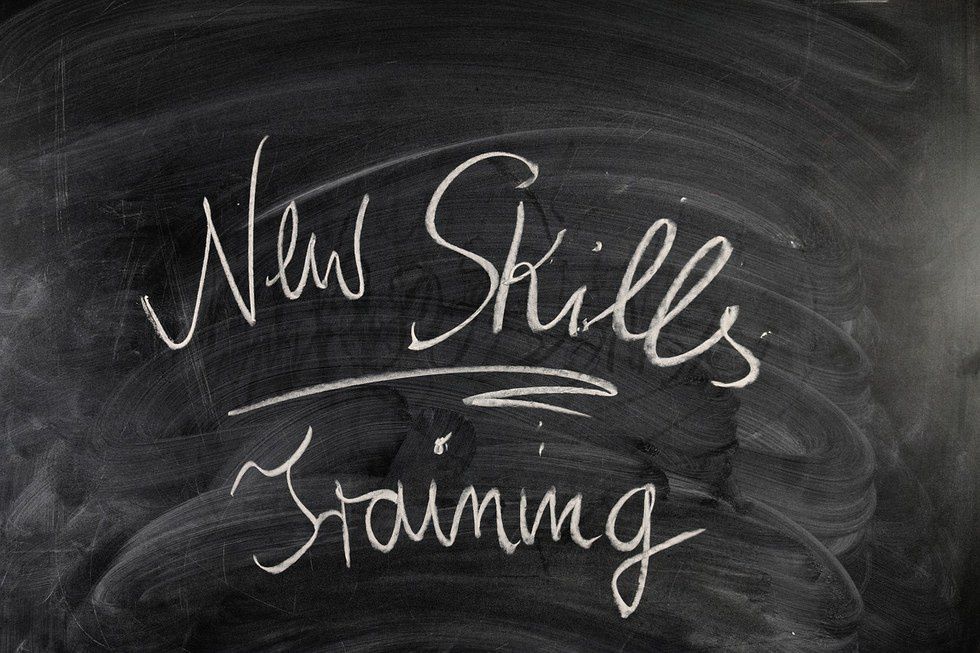Now that I’m halfway through my college career at the University of Bridgeport, I feel as if a clock is ticking. It seems like just yesterday I arrived on campus, nervous and anxious of what the next four years would bring. So much has happened in only two years, and I can only hope that these next two years bring even more opportunities. I wasn’t the most active student during my freshman year, but I can certainly say otherwise now. Enrolled in six classes, president of a school club, orientation leader, and work-study recipient, I am now quite the busy bee. I admit it’s a lot to take on, but I’m all about milking my college experience while I’m here. Here are some tips on how to take advantage of the opportunities college presents for you and making the most of “the best years of your life”:
1. Join a club and/or organization
This is probably the most popular advice given to new college students and that’s because it makes such a HUGE difference. All work and no play is no fun at all. Joining a club can make all the difference. You make friends who have a similar interest and it is a great resume builder. Employers today don’t care as much about your straight A’s if you don’t have the social skills to back it up, likewise your extracurricular activities can make up for not-so-exemplary grades. My school has over 50 clubs for students to get involved in. Being a club leader has opened so many doors for me: I met faculty and staff that I would not have otherwise gotten to know without my position. I learned professionalism and networking skills, among others. I made some great friends, and I’m helping other students get involved on campus.
Maybe there is nothing in particular that interests you on campus, that’s okay. Guess what? You can START a whole new club. Here at UB, all you need is a minimum of 10 members and a faculty member to stand as a club adviser and voila, you have a club. No excuses.
2. Get to know the staff and faculty
I mentioned how being in a club has allowed me to get to know some of the faculty members, but I cannot stress how important it is to get to know the people who work at your school. The connections you can make are endless! Your professors, administrators, and even the custodial staff all have something to offer, whether it is knowledge or a helping hand. It’s nice to know when you need a recommendation for a job or scholarship that you have people who would be more than willing to do that for you. Maybe the dean of your school just heard of an internship opportunity and immediately recommends it to you, all because you would stop by their office and say hi regularly. The point is, by taking the time to know the faculty, you’re not only putting yourself out there, but also building connections that can last well beyond your time at that institution.
3. Talk to your classmates
When you don’t have a class with a friend, it’s easy to keep to yourself. Likewise, when you have friends in your class, it’s easy to socialize with them and ignore everyone else. But when you keep yourself closed off like that, you could be missing out on so much. With the diversity you find in terms of age and culture in a college classroom (especially at UB), you could be missing out on a chance of a lifetime. Maybe the person next to you is already working in your dream field and just finally received the opportunity to get a degree. Maybe they know someone who you idolize. Maybe, just maybe, you’re sitting next to the future president of the United States, or a future Chief Justice, or a future CEO. Make the connections while you can, especially if the person is from another place. Learning about another culture is an adventure all on its own. The friends you make in college can certainly last a lifetime.
4. Take a class that has nothing to do with your major
Hopefully, you’re excited to take classes in your field of study, but don’t limit yourself. Free electives are your best friend. Take a class related to something different, develop a new skill, have some fun with it. When all your classes relate to the same thing, sometimes it’s nice to have a class that shakes things up for you. So take a language class, an art class, psychology, music, whatever makes you happy. I know that as a Business major, taking sign language was not only a fun getaway but also a life-changing course. Now, outside of my business degree, I’m studying a new language. You can even minor in something unrelated to your major to really shake things up.
5. Try new things
College is a great time to go on adventures, great and small. Explore the area around you. You’d be surprised at what local treasures there are in or around your school. Bridgeport, for instance, has some cool theaters to watch plays, ballets, and even an orchestra. Make a list of places to visit in your college town. Even make a list of places to travel to outside your college radius with your friends. The amount of adventures I’ve been on in my first two years of college are countless already! If you really want to try something really different, consider studying abroad. Look into the programs your school may have. My school had a scholarship to study abroad in Asia and all the student had to pay for was their plane ticket! Take advantage of down time and vacation days and get out there!
6. Get a campus job
Work-study isn’t always the most exciting thing, but it builds your resume, work ethic, allows you to make connections, and you may even learn a thing or two. I know my campus jobs have definitely improved my social and customer service skills. I’ve made great friends too. Keep an eye out for open positions throughout campus. If your school has an online portal for job postings, check it regularly. Some pretty interesting or convenient jobs pop up. You could end up having that job for your entire college career.
Who doesn’t love a little extra cash more than a college student living the struggle?
7. Get an internship
One thing stressed in higher education is the importance of getting an internship. Many professional jobs today even require you to have worked at least one internship. Internships are great for learning things you may not learn in a classroom setting. Though it can be competitive to receive an internship, many are designed specifically for college students. They work around your schedule during the academic year and they teach you all the things they don’t expect you to know. Don’t be so quick to turn down an unpaid internship either. You never know where that job could lead and the results could be completely worth it. Remember that an internship is more about gaining experience than it is about your bank account.
8. Do something that’s not for yourself
It’s nice to give back from time to time. I hope that college enables its students with a sense of community and the generosity to help each other out. Participate in a community service project. There may be a club or organization that puts these projects together. And don’t feel the need to commit yourself to community service every week if it doesn’t fit in your schedule, do it when you can. There are other ways to support such as through donations and helping in the organization process. Bringing awareness to a cause is a big help on its own. There are also options such as Alternative Spring Break in which you go on a trip to another country or area of need and help the community by building a home or bringing supplies for the locals. Pay attention to what is going on around you, both in the local community as well as the world. You never know when a cause may pop up, whether it’s donating to flood victims or raising money for school supplies.
9. Remember why you’re there
Going to college brings endless possibilities with it. With all the opportunities at hand, it can be easy to neglect your academic responsibilities. While the extracurricular activities and “real world” experiences are necessary, the academic parts are the initial reason for going there in the first place. C’s may get degrees, but what’s important is that you learn as much as you can inside and outside the classroom. Your professors are there to show you the ropes and present you with information that should benefit you once you graduate. They use their own life experiences to show you the do’s and don’ts of whatever it is you may be studying. My professors are easily one of my favorite parts of UB. Sometimes the homework is tedious, studying is strenuous, classes are too long, and some professors are just not a good fit, but at the end of the day, we’re there to learn. Make the best of it while you’re there.
10. Don’t be afraid of the unknown
College is full of people getting their lives together and trying to figure it out. It’s completely okay, to not always have a clear picture of who you are or what you want to do. As you gain experience and try new things, you’ll figure it out. Even if you don’t, things have a way of working out the way they are meant to. If you’re ever feeling lost or confused, I guarantee you that you are not alone. I cannot tell you how many times I’ve wondered if I was studying for the right field or going in the right direction. It helps to know that the people around you struggle with the same feelings. There is a solidarity in it. All I’m sure of is that while I’m still here, I’m making the most of it and taking advantage of every opportunity.




























